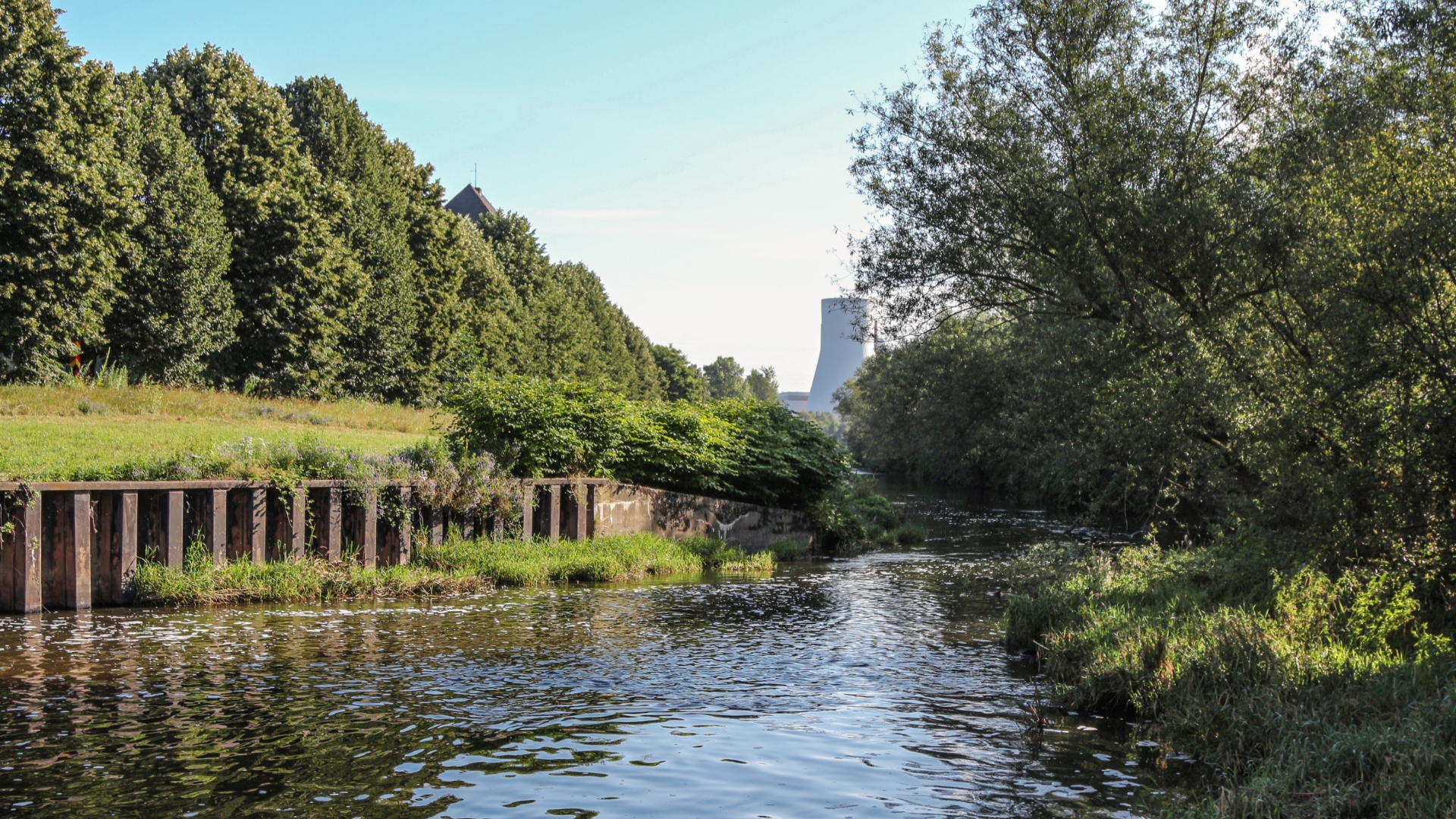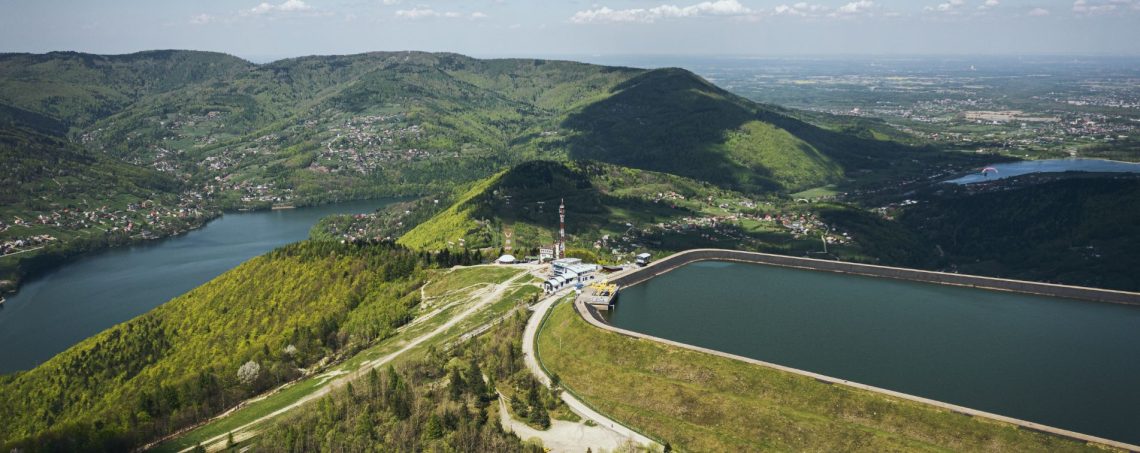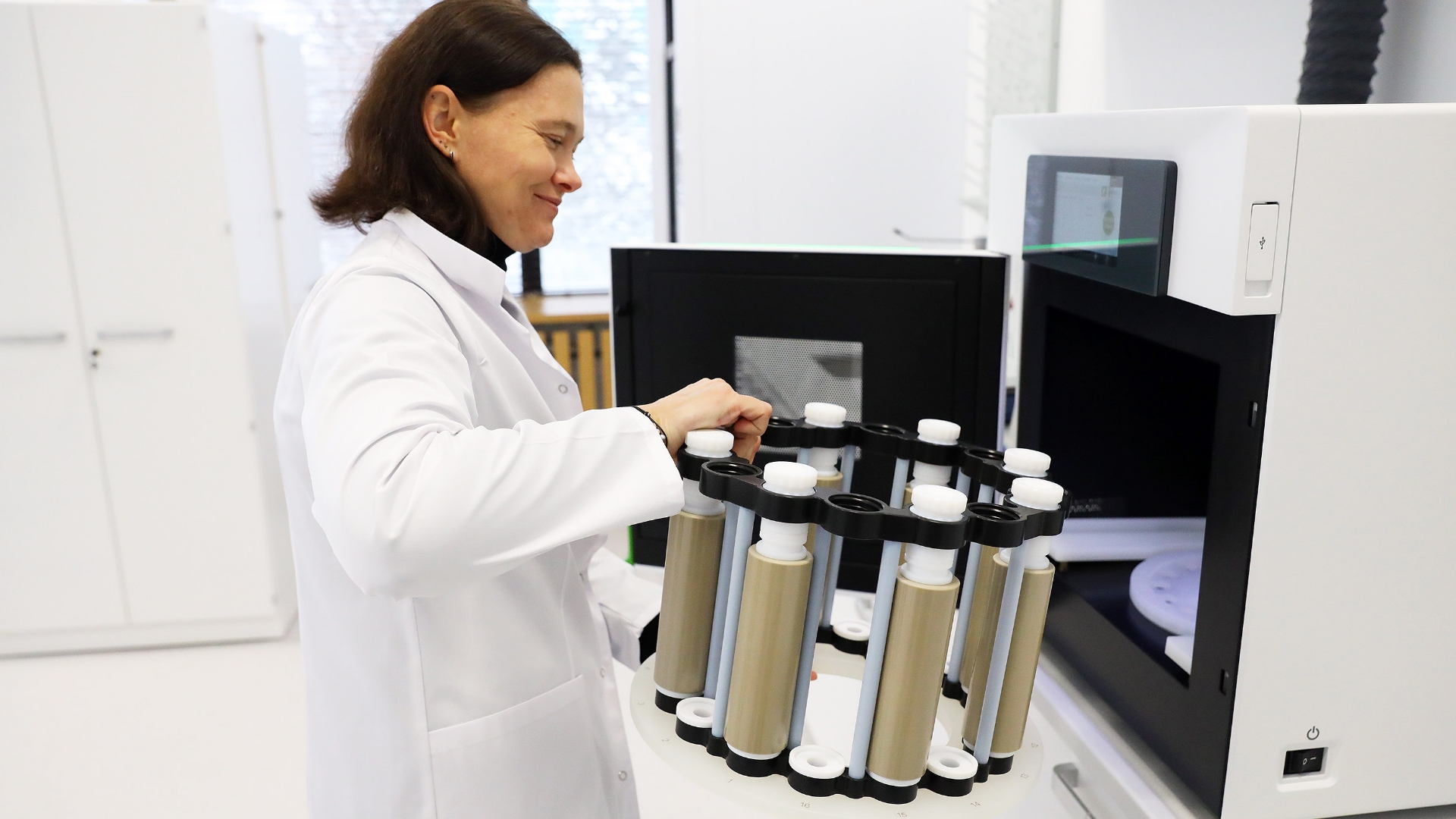- does not give rise to the need to allocate new land for the construction of landfill facilities and associated infrastructure,
- reduces the use of natural resources (e.g. natural gypsum, aggregates) and thus reduces the area of degraded land associated with their extraction;
- leads to a reduction in nuisance caused by landfills, both for people and the environment;
- reduces the cost of doing business.

-
3-3
-
3-3
-
306-1
-
306-2
According to PGE’s strategy, one of the ways to achieve the goal of climate neutrality by 2050 is to implement the principles of circular economy in all areas of activity.
Actions taken by PGE to close cycles of raw materials are aimed at the optimum use of resources, the protection of natural resources and the minimisation of adverse environmental impact by, inter alia, reducing the volume of generated waste.
Circular economy is an increasingly important area of the PGE Capital Group's operations. The acquisition of Epore shares from PGE GiEK is another step related to the strengthening and development of the circular economy business segment within the PGE Group. The actions we are taking are aimed at making optimal use of the PGE Group's resources in the area of managing combustion by-products. This transaction brings PGE closer to building a significant circular economy business entity at not only the national, but also the European level. Thanks to the use of synergies, we will increase activities towards zero-emission in such significant areas of the economy as construction and power sector.
Environmental and social effects of implementing Circular Economy Products
Fig. Environmental and social effects of implementing circular economy products
Processes and assets that are in alignment with the circular economy include:
- extending the life cycle of raw materials and materials used,
- reducing energy losses and material waste,
- processing waste into wholesome products in order to minimise waste,
- reclamation and restoration of investment values of post-industrial sites.
National and international guidelines for circular economy
PGE Group operates in line with national and international guidelines in the circular economy area, primarily based on the legislative and non-legislative initiatives of the European Green Deal.
The European Parliament, in its resolution of January 15, 2020 on the European Green Deal, called for the necessary transformation of European society into a climate-neutral society by 2050 at the latest.
The European Green Deal contains a roadmap for a more efficient use of resources through a transition to a clean, circular economy, as well as for combating the loss of biodiversity and reducing pollution levels.
The strategy also aims to protect, preserve and enhance the EU’s natural capital and protect the health and well-being of citizens from environmental risks and negative impacts.
In terms of national regulations, the resolution on the adoption of the 'Roadmap for the Transition to Circular Economy’ of September 10, 2019 commits to act towards rational waste management.
The Roadmap focuses, on the one hand, on general measures to create conditions for the development of the bioeconomy in Poland and, on the other hand, on promotion and development measures for the creation of local value chains, in industry and in the energy sector.
Changing the way we think about the production of goods is expected to contribute to a sustainable, low-carbon, resource-efficient and competitive economy.
The Circular Economy encompasses all stages of a product’s life cycle, from the sourcing of raw material through product design, production, consumption, waste collection and management.
It is important that waste, if it is already created, is treated as secondary raw materials and used for re-production. Building a circular economy is expected to increase the innovativeness of Polish businesses and increase their competitiveness in relation to foreign entities.
Dedicated Circular Economy segment
A dedicated Circular Economy segment has been separated within PGE Group. It is responsible for promoting, creating and implementing circular economy principles throughout PGE Group and increasing the degree of utilisation of raw materials involved in energy generation processes.
This is a response to the challenges facing the Polish economy both in the long term and in the coming years as an important element of the transition process.
An efficient Circular Economy model will make it possible to carry out an energy transition that will fit in with national challenges in the area of waste-free and environmentally friendly energy.
The leading company in this segment is PGE Ekoserwis, which has decades of experience in managing combustion by-products from the power industry in various economic directions.
Annually, the company manages nearly seven million tonnes of waste and by-products from the power industry. This results in more than 200 products and varieties of products based on combustion by-products.
The segment’s activities are focused on the realisation and implementation of ecological and economic solutions in the area of raw material resources and post-industrial energy waste.
The main objective of the new segment is a coherent, strategic and business-oriented management of post-industrial raw material streams in line with a closed loop economy, taking into account care for the environment and sustainability.
Implementation of PGE Group's strategic priorities within the Circular Economy segment
Implementation of PGE Group's strategic priorities within the Circular Economy segment
Fig. Implementation of PGE Group’s strategic priorities within the Circular Economy segment
Current and future management model for Circular Economy at PGE Group
Fig. Current and future management model for Circular Economy at PGE Group
Adequately ensuring the use of secondary raw materials is connected with the necessity to implement the principle of priority for these raw materials in economic processes.
The EU Circular Economy package, which reduces and eventually eliminates landfilling in principle, is a major challenge for the energy and mining industries.
At the same time, this is an opportunity for the energy sector and a benefit resulting from the preservation of natural resources for future generations and lower environmental impact.



Combustion by-products
Combustion by-products are the result of electricity and heat production in generating units using fossil fuels. Combustion by-products management at PGE Group, based on circular economy, leads to the use of waste as full-value substances managed in other branches of the economy (cement industry, construction, road construction, mining), and in consequence to the reduction of the volume of generated final waste.
The reuse of combustion by-products in various industrial sectors brings tangible environmental benefits. The inconvenience of landfills, both for people and the environment, is reduced as there is no need to allocate new land for their construction, with accompanying infrastructure.
Combustion by-products are successfully replacing natural raw materials (e.g. natural gypsum, aggregate), thus reducing their extraction as well as the emissions that accompany their extraction. The responsible use of secondary raw materials, such as gypsum from flue gas desulphurisation plants, is a good example of the implementation of the principle of priority for secondary raw materials in economic processes. Such measures help to protect fossil resources for future generations.
In pursuing its strategy, PGE places great emphasis on developing solutions that maximise the economic use of raw materials and waste, thereby achieving environmental and climate protection objectives. In the area of waste management, indicators have been set for waste recirculation and reduction of the volume of landfilled waste by 2035 in the form of two targets:
- recycling above 65%, and
- landfilling of no more than 10 percent of the waste generated.
The methods of combustion by-product waste management applied by PGE are eco-friendly and constitute an alternative to landfilling.
Solutions are developed using the company’s own research and development facilities and laboratory, and are supported by leading scientific and research institutions with which the company cooperates on a regular basis.
The combustion by-products and gypsum produced are monitored for quality and, depending on the parameters, are directed to the appropriate use.
Industries to which PGE directs combustion by-products in the form of full value products or raw materials and their relation to the circular economy
Fig. Industries to which PGE directs combustion by-products in the form of full value products or raw materials and their relation to the circular economy
Manufacturers of cement, concrete, ceramics, mining and road construction, among others, benefit from the use of proven and safe solutions. Products made using combustion by-products technology meet all the requirements to be met by building materials or products.
The process of using combustion by-products in the construction industry is supervised by the Building Research Institute. The products have also been registered under the international REACH system. As part of the registration, the combustion by-products were subjected to comprehensive toxicological, ecotoxicological and mutagenic testing in accordance with the requirements set out by the European Chemicals Agency (ECHA).
The tests were performed in laboratories of the highest global standard and unquestionable reliability. The test results unequivocally confirmed that these substances are safe and pose no risk to humans, animals or the environment. Their use does not need to be restricted in any way due to their environmental impact.
By-products of combustion are also used in the reclamation and macro-levelling of post-industrial and degraded land, restoring many areas to their former landscape and natural beauty. They are also widely used in the mining industry to protect pits.



Mining by-products
The minerals that accompany lignite deposits, called mining by-products, play an important role in the sustainable supply chain of raw materials and materials.
These include limestone, lake chalk, sands, clays, flint cobbles and erratic boulders in the form of granitoids and other Scandinavian rocks. Management of associated minerals contributes to rational deposit management and protection of the earth’s surface.
The reclamation and restoration of investment values of post-industrial sites is an integral stage in ending the extraction of energy minerals. The decommissioning of pits is aimed at making them usable and restoring them to the environment.
In the case of lignite pits, international experience shows that the most popular reclamation is water reclamation. For this purpose, macro-levelling is carried out using the earth and rock masses accumulated during the exploitation phase in order to shape the land appropriately for leisure and recreation or in another direction.
Reclaimed areas can also be an attractive area for investments in renewable energy sources. The location of these areas in the vicinity of energy connections will allow them to be used in the future for the construction of wind farms, photovoltaic farms or energy storage facilities.
Circular Economy Research and Development Centre
In a time of transition, PGE faces new challenges related to the development and implementation of waste processing technologies and recovery of raw materials from RES installations, which in a discernible time horizon will also constitute a potential for their optimal use in accordance with the principles of the Circular Economy.
To be able to achieve this, specialised competence and dedicated research and development activities in this area are required. That is why the Circular Economy Research and Development Centre located in Bełchatów was opened in December 2022, which is a centre of research and development competence responsible for developing and implementing solutions to optimise the use of post-industrial waste from the energy sector and the recovery of valuable raw materials from decommissioned RES installations.



The main task of the Centre will be to develop technologies for waste processing, raw material recovery and the manufacture of full-value products from extracted resources, as well as to develop specialised solutions for renewable energy sources used in photovoltaic installations and wind farms.
The centre is an important centre for the development of innovation. Through cooperation with scientific centres, it will develop environmentally friendly solutions. The Circular Economy Centre currently comprises the Research and Development Department (Recycling and Recovery Section and Production Technology Section), the Laboratory Department and the Factory Production Control Department.
The specialised facility will have its own research and technical laboratory. The scope of work on advanced projects will include the development of technologies and solutions for waste processing, recovery of raw materials and manufacture of high value products from the resources obtained.

